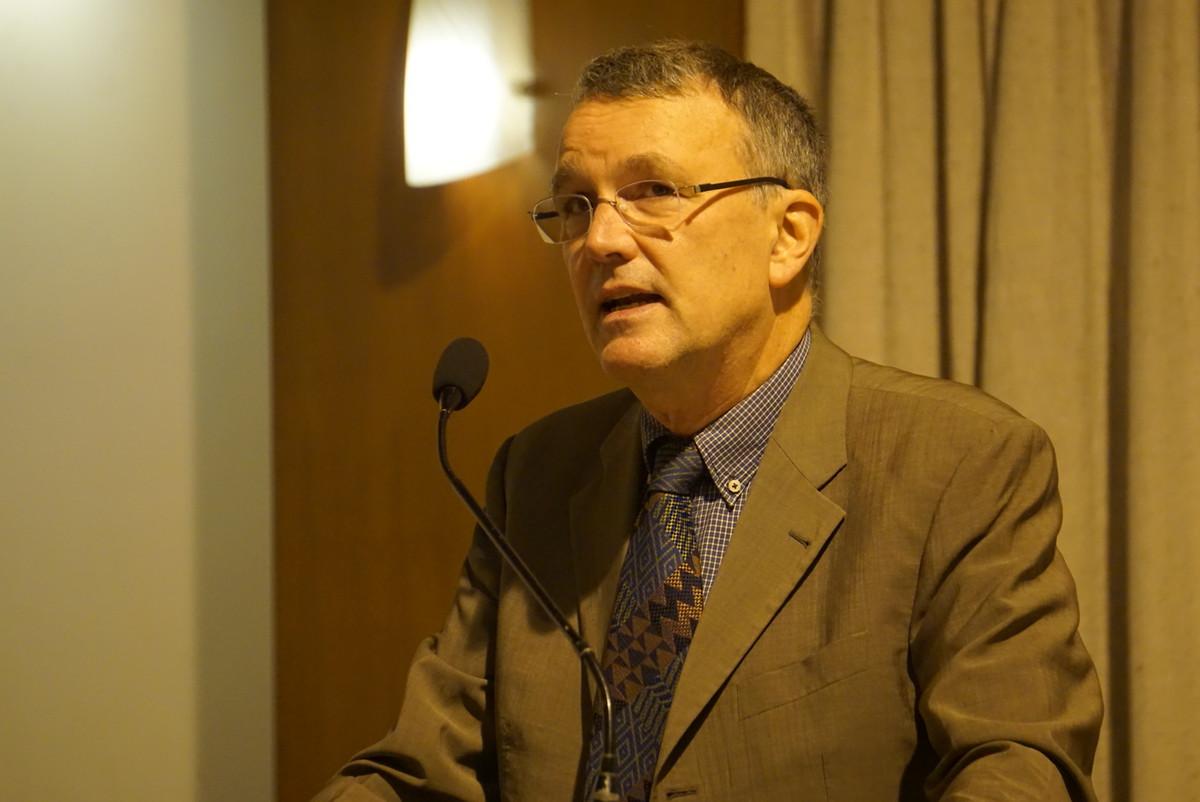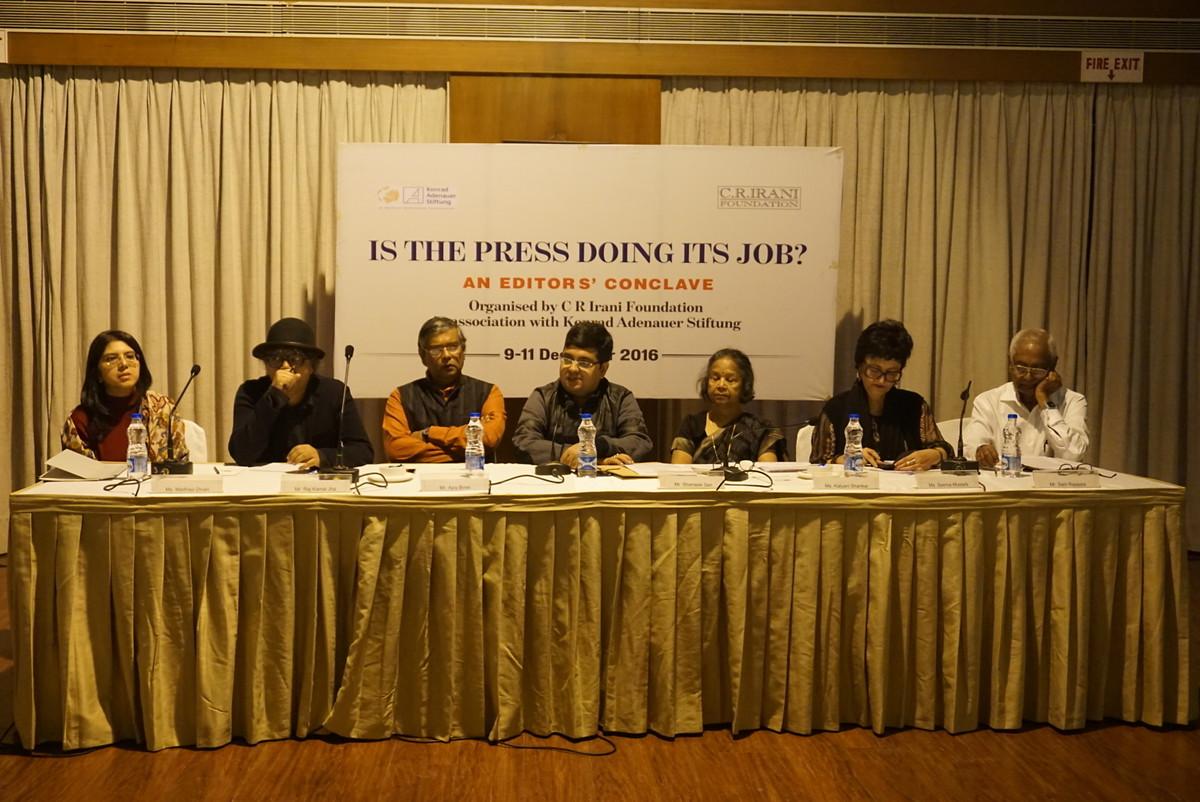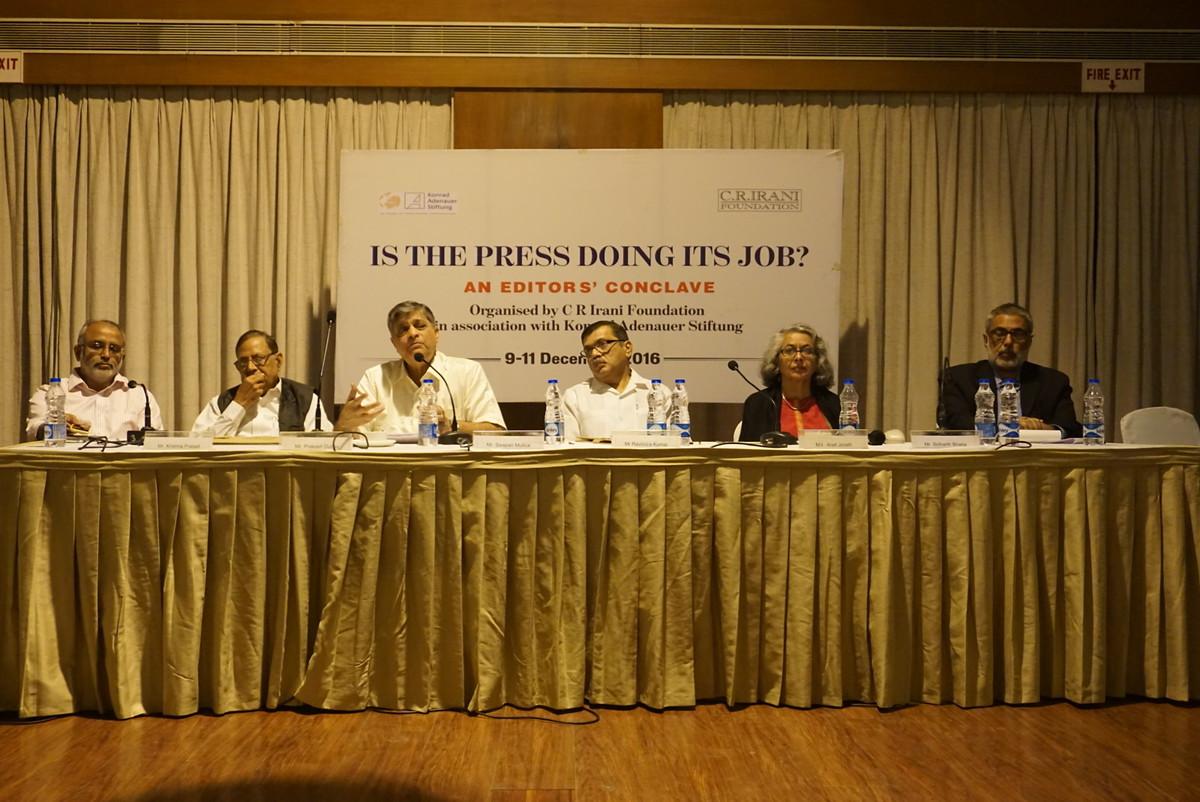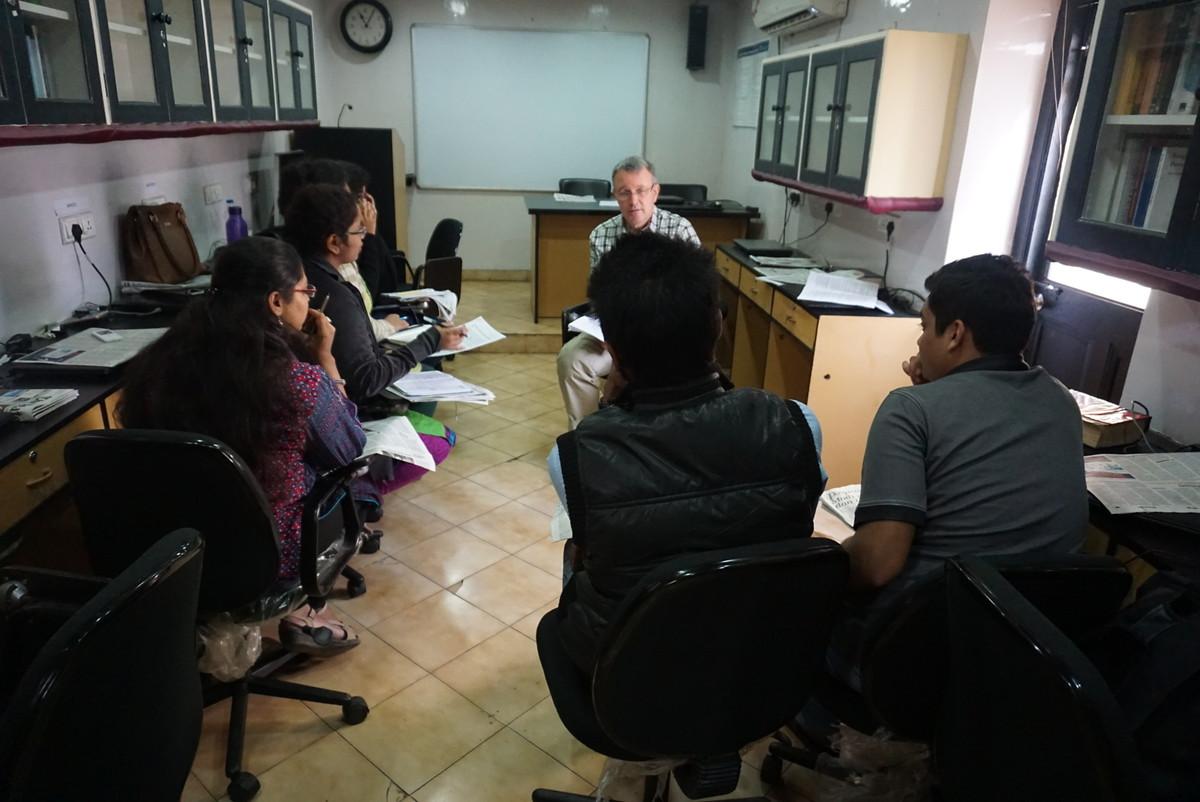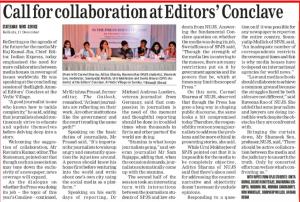Is the Press doing its Job? - Foundation Office India
Event Reports
In the annual conference students from SPJS and West Bengal National University of Juridical Sciences (NUJS) were given a platform to interact with the leading journalist formally and informally. The conference was welcomed by Ravindra Kumar, editor of The Statesman, and Pankaj Madan, Head-Programmes of the Konrad-Adenauer-Stiftung India. In his keynote address, Dr. Lüders expressed his view on current developments in journalism in Germany. He elaborated the significance of difference between criticising and demonization in reports. Journalists have got the obligation to explain the facts and not to restrict themselves to narrative of “good and evil.” In his opinion the media in this time should reinvent itself, as in this era social media is the future of medium and long-term.
In the first session Prof. Shameek Sen, Professor for Media Law, NUJS moderated in the panel discussion, how the Media discussed about the latest questions and which lessons were applied. Sam Rajappa, veteran journalist and founding-director of the SPJS, discussed the most recent change of currency notes by Indian Government and skeptically said, that Media first made corruption the subject of discussion out of this. Advocate and author Ms. Madhavi Divan said that in a post-truth world, the media are losing the ability to engage and news and non-news are being mixed up in the social media which calls for the revival of traditional media.
Talking about misreporting, Mrs. Kalyani Shankar, former Political Editor of Hindustan Times and also its former Washington correspondent senior journalist, said that most of the young journalists are not trained properly and more often than not they depend on the social media. Ajoy Bose, senior journalist and commentator said that due to lack of correspondents, the media had to depend on foreign news agencies for coverage of international issues.
Seema Mustafa, editor of The Citizen, said, “Journalism must develop a memory,” explaining when the country moved from surgical strikes to demonetisation, the mainstream media forgot about the Kashmir situation and reported only on current issues. Mr. Raj Kamal Jha, chief Editor, Indian Express said “The five ‘Ws’ and ‘H’ are dead in 2016. By the time you reach the story you find everybody knows the story through social media,”
The topic of the second session which was moderated by Swapan Mullick, SPJS focussed on the possible solutions for crisis of credibility and the question, how we can overcome all the obstacles to its practical implementation. Mr. Siddharth Bhatia, founding editor of The Wire, said the Press has taken upon itself to explain for the government rather than questioning it. Holding forth how brands have been predominating news, veteran journalist Arati Jerath, said that the interference of business conglomerates inside the newsroom has sounded the death-knell of journalism. The objective of reporting should be of providing the information. Mr. Prakash Dubey, group editor, Dainik Bhaskar and Krishna Prasad, former editor, The Outlook addressed the issue of current situation of Indian Media. They emphasized, that we are experiencing the best time and worst time of journalism in many aspects. Giving an interesting twist to the tale, Mr. Ravindra Kumar, editor, The Statesman, suggested shifting attention from the press to the judiciary for a moment and enquired whether the latter is doing its job. He said that both the pillars should work in tandem to preserve the ideals of democracy.
On the second day of the conference the panel discussion started with reflecting on the agenda of the future for the media. Mr. Raj Kamal Jha, Chief Editor, Indian Express, emphasized the need for more collaboration between media houses in coverage of issues worldwide. “A good journalist is one who knows how to tackle complexity,” he said, adding that journalists should continuously strive to educate and update themselves before delving deep into a story. Mr. Krishna Prasad, former editor, The Outlook, remarked, “At least journalists are reflecting on their work. Are other institutions like the government and the court treading the same path?” Speaking on the basic duties of journalists, Mr. Prasad said, “It’s important for journalists to wake up angry and constantly question the injustices around. A person should know his home first before venturing into the world and write about one’s own city using the social media as a platform.
Speaking on his early days of reporting, Dr. Michael Andreas Lüders, veteran journalist from Germany, said that compassion in journalism is the need of the moment and thoughtful reporting should be done in troubled times when thousands in Syria and other parts of the world are dying.
Carmel Sharma of NUJS, observed that though the Press has gone a long way in shaping public discourse, the same looks a bit compromised today. Therefore, the responsibility rests on young journalists to address the problems and be more ethical in presenting stories, she said.
On this note the panel discussion was handed over to students from SPJS and NUJS, to get their views on conference and to enable them to express their perspective on the Future Media. In this discussion focus was especially on the role of social media and the way of handling the “Fake News”.
After the conference, Dr. Lüders visited the SPJS for three days seminar with students, in which he exchanged about the writing of press articles. The students wrote articles in the framework of the latest political situation in India and the World.



